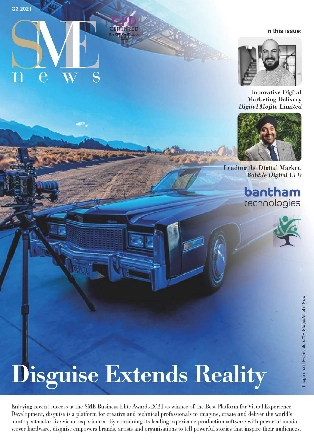–Failure of C-Suite to implement driving for work policy
-Lack of checks for those who drive their personal car for work
–Attitudes to mobile phone use putting employees well-being at risk
–What employers should be doing to combat?
A study commissioned by Driving for Better Business (DfBB), the government-backed Highways England programme to raise awareness of the business benefits that come from improved management of occupational road risk, has highlighted dangerous attitudes and behaviours of C-Suite and employees putting the safety of employees who drive for work at risk.
The DfBB survey of 1,006 employees and 255 C-Suite executives (Executive Directors) from the UK, conducted by Censuswide, has revealed a tension between what C-Suite claim and what their employees say is happening while driving for work.
The findings show that despite three quarters (75%) of C-Suite executives claiming to ensure employees are aware of their legal obligations in relation to driving for work, nearly half (45%) of employees surveyed who drive their personal car for work said they have not been given a copy of their employer’s driving for work policy.
The report found that business leaders are not performing checks on employees who drive their personal cars (‘Grey Fleet’) for work purposes. Three in five leaders (60%) stated they were unsure if any or how many employees use their own car to drive for work purposes and nearly a half of employees who use their personal car for work purposes (45%) said they have not been given a copy of their employer’s driving for work policy. 90% of drivers surveyed said they used their personal cars for work journeys, 75% doing so at least once a week, yet a third of these drivers (33%) were not insured to do so – saying they do not have cover for business use on their vehicle insurance. Only a third (34%) said their employer had checked their driving licence.
C-Suite behaviours around mobile phone usage are adversely impacting on employee well-being. Nearly a half of business leaders polled (49%) expect their employees to answer their phone at any time, including while driving for work. Almost half of employees (45%) said they experience stress when they receive a call from their boss while driving for work. One in six employees who drive for work (17%) said they have been involved in an incident when driving for work due to a phone call from a colleague. Despite it being illegal, 1 in 20 C-Suite and 1 in 8 employees thought the hard shoulder was a safe place to take a phone call.
Employees mirror dangerous behaviours around mobile phone usage while driving. Six in 10 (61%) employees admitted they do not always, or only sometimes, find a safe place to make or receive a work call when driving for work with just over one in eight employees who drive for work (13%) thinking it safe to take a phone call while parked on the hard shoulder of a motorway.
The survey found a poor approach to vehicle checks and maintenance by employees. Nearly three quarters of employees who drive for work (74%) said when they check their tyres they simply take a quick glance to see that tyres look ‘OK’.
Simon Turner, Campaign Manager, Driving for Better Business said: “The report shows a disparity between what employers and employees are saying when driving for work. C-Suite leaders are failing to communicate and implement a robust driving for work policy to keep those who drive for work safe, particularly for those who use their personal cars (‘Grey Fleet’). Leaders are failing to carry out basic due diligence checks such as ensuring that all employees have a driving licence or vehicle insurance.
“At the same time, the study highlights employees are putting themselves at risk while driving for work, not checking that vehicles are roadworthy and exhibit reckless behaviours when using their mobile phone.”
“As a way of reducing occupational road risk and safeguarding employee wellbeing, a dual responsibility by C-Suite leadership and employees is needed. Leaders must implement a driving for work policy that enforces legal and ethical obligations on all employees that drive on work-related journeys. Regular checks need to be put in place to ensure that employees have read and understood the guidelines laid out in the driving for work policy. In doing so, the associated risk to road users and pedestrians is reduced.”
“A good practice driving for work policy ensures that at a minimum, organisations are compliant with all relevant legislation and guidelines. Once implemented, these policies complement more general employee safety and wellness programmes as well as introduce efficiencies that reduce costs associated with employees that drive for work purposes,” said Mr Turner.
Driving for Better Business promotes a free seven-step programme of action to reduce occupational road risk. Organisations that introduce the DfBB programme have experienced significant operational, financial and employee benefits.







